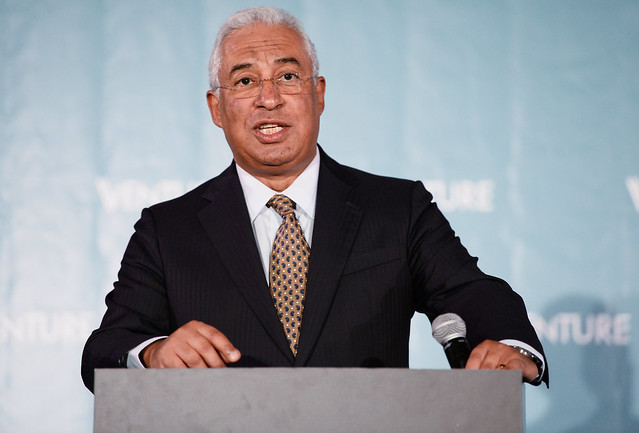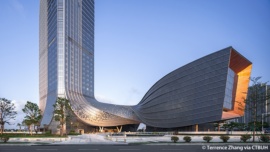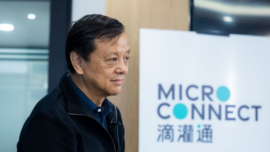Seventeen years ago, when the Forum was created, there was some jealousy on the side of Portugal. This phase has passed, but the Forum remains an uncomfortable topic.
MB May 2020 Special Report | Forum Macau: 17 years, old enough?
Since the African countries that are members of the Forum, as well as Timor, show weaknesses of various kinds, it is up to Portugal and Brazil to play a greater role.
It turns out that both Portugal and Brazil, in these 17 years, have shown – albeit in very different ways – some kind of discomfort with the initiative.
But while Brazil shows a minimalist stance, clearly influenced by the fact that it is a major economic partner in China and does not need the Forum, Portugal has been much more present and active.
In addition to the weight that China represents in the Portuguese economy, namely in the business sector, Portugal is not unaware that devaluing the Forum would be devaluing Macau.
Portugal has – according to several sources consulted by Macau Business, and who requested anonymity, a sign of the discomfort that the issue continues to provoke – been manifesting reservations of three different types:

1. CPLP
CPLP is the Community of Portuguese-speaking Countries. Portugal is the leader. The headquarters are in Lisbon.
“It is understandable that, when leading the CPLP, Portugal felt comfortable with the fact that Beijing assumed the leadership of a cooperation Forum with the Portuguese-speaking world,” defends researcher Carmen Amado Mendes.
Portugal still seems not to have completely surpassed the approximation of the Portuguese-speaking countries to the Chinese giant.
2. Multilateral
The Forum uses the figures from China’s trade with the PSC to show results, but everyone knows that these figures are the result of bilateral deals, made outside the Forum itself: Angola and Beijing, Lisbon and Shanghai, São Paulo and Guangdong set up their own trade without going through Macau.
Portugal has been the most active voice to defend another approach, based on multilateralism or at least trilateralism. “In addition to bilateral cooperation between the two countries, there is a mutual availability for triangular cooperation” in the Portuguese-speaking space, said the Portuguese Prime Minister at the last interministerial conference.
The idea of this multilateralism is precisely to involve Macao more and give more meaning to the Cooperation Fund itself. An investigation carried out in Portugal with Portuguese companies reveals that they do not recognize any contribution to the Forum to increase business between Portuguese companies and the three economic areas (China, Macau and PSC.),but – this is the reality – if Portugal has been talking about “triangular cooperation” for several years when referring to the Forum, it has done little or nothing in this regard.
3. Another form of organization
The Forum has wasted a significant part of its resources and energy on discussing its own form of internal organization.
What Portugal understands is that, in order to function better and be truly a Forum, this body should not be completely dependent on the wishes of China. China’s financial support hinders the functioning of the Forum, which is yet another reason to discuss its renewal.
More internal democracy and more sharing of responsibilities and costs have been ideas on the table for many years.
First PhD thesis
“The number of scholars researching on Forum Macau is growing as the interest on China-PSC relations are developing,” says Francisco Leandro to Macau Business.
The inception of the new doctorate on research on China-PSC at City University of Macau in 2013, “has begun to deliver concrete results and soon we will have the first PhD thesis on this and other related topics,” adds the Coordinator, Institute for Research on Portuguese-speaking Countries.
The working title is “Macao and the Portuguese-speaking Countries: The Role of the Forum Macao in Bridging Relations” and the author is Pedro Paulo dos Santos, confirmed Macau Business.
Professor Leandro reminds us that several universities in Portugal (namely the University of Coimbra, Lisboa, Aveiro, and Minho), Cabo Verde, Mozambique, Timor-Leste and Brazil established cooperation programs, which include the study of Macau in the context of the relations China-PSC.
The City University of Macau and the University of Coimbra are the only two institutions, outside mainland China, offering specific programs on research on China-PSC, covering different angles from politics, law, trade, investments, culture, geopolitics, business, history and social issues.
However, unlike what happens with Portuguese academics, among researchers of Chinese origin, in Macao or China, this topic is not of interest.
Macau Business confirmed that at the IPM’s Um País Dois Sistemas Center, there is currently no researcher dealing with the issue.
























